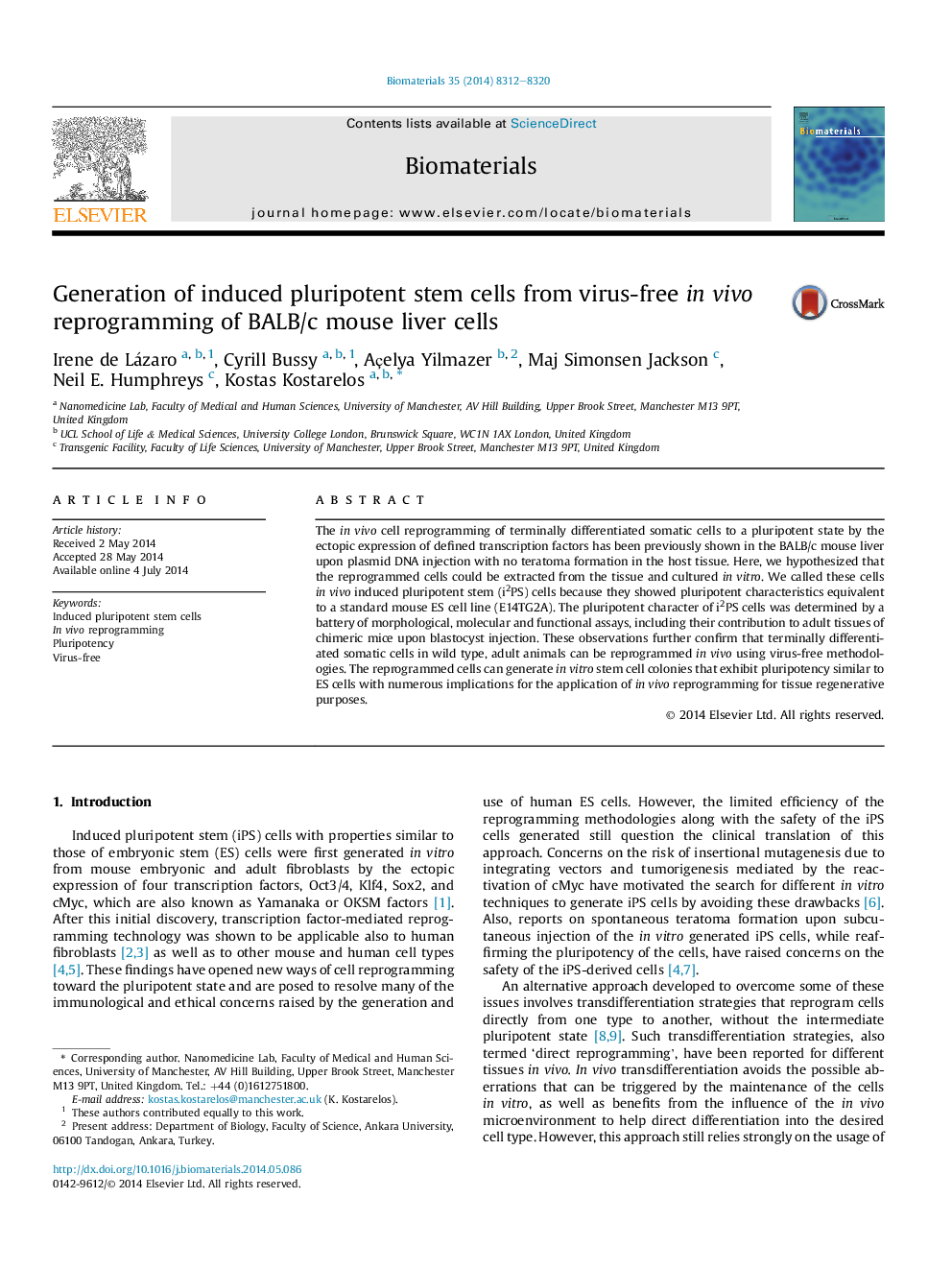| Article ID | Journal | Published Year | Pages | File Type |
|---|---|---|---|---|
| 10227291 | Biomaterials | 2014 | 9 Pages |
Abstract
The in vivo cell reprogramming of terminally differentiated somatic cells to a pluripotent state by the ectopic expression of defined transcription factors has been previously shown in the BALB/c mouse liver upon plasmid DNA injection with no teratoma formation in the host tissue. Here, we hypothesized that the reprogrammed cells could be extracted from the tissue and cultured in vitro. We called these cells in vivo induced pluripotent stem (i2PS) cells because they showed pluripotent characteristics equivalent to a standard mouse ES cell line (E14TG2A). The pluripotent character of i2PS cells was determined by a battery of morphological, molecular and functional assays, including their contribution to adult tissues of chimeric mice upon blastocyst injection. These observations further confirm that terminally differentiated somatic cells in wild type, adult animals can be reprogrammed in vivo using virus-free methodologies. The reprogrammed cells can generate in vitro stem cell colonies that exhibit pluripotency similar to ES cells with numerous implications for the application of in vivo reprogramming for tissue regenerative purposes.
Related Topics
Physical Sciences and Engineering
Chemical Engineering
Bioengineering
Authors
Irene de Lázaro, Cyrill Bussy, Açelya Yilmazer, Maj Simonsen Jackson, Neil E. Humphreys, Kostas Kostarelos,
